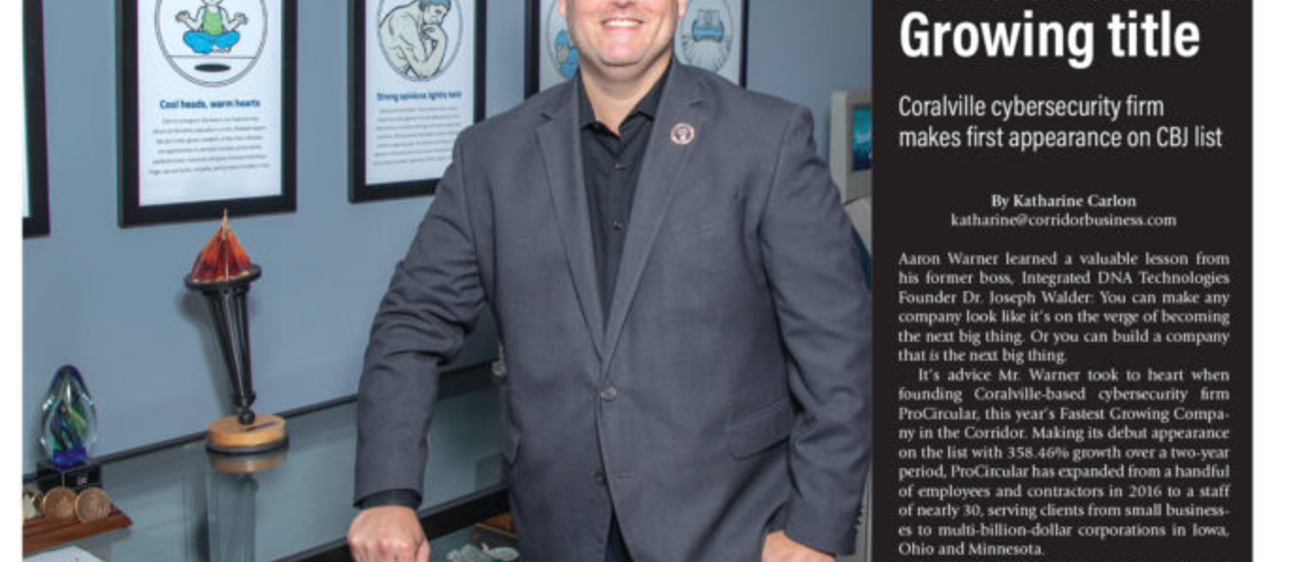By Katharine Carlon
katharine@corridorbusiness.com
Aaron Warner learned a valuable lesson from his former boss, Integrated DNA Technologies Founder Dr. Joseph Walder: You can make any company look like it’s on the verge of becoming the next big thing. Or you can build a company that is the next big thing.
It’s advice Mr. Warner took to heart when founding Coralville-based cybersecurity firm ProCircular, this year’s Fastest Growing Company in the Corridor. Making its debut appearance on the list with 358.46% growth over a two-year period, ProCircular has expanded from a handful of employees and contractors in 2016 to a staff of nearly 30, serving clients from small businesses to multi-billion-dollar corporations in Iowa, Ohio and Minnesota.
ProCircular is “thriving, not just surviving,” despite a pandemic that has crippled the economy, with 2020 revenue up about 15% over the same time last year. And with the crisis only exacerbating threat levels, cybersecurity is one of the few areas where businesses can’t afford to skimp.
Mr. Warner hopes to take his company national within the next five to 10 years, and has ambitious plans to introduce a array of new products and services to meet the increasingly complex challenge of keeping sensitive data secure.
“But this isn’t just about money,” said Mr. Warner, who set out to “do good and do it better” when he left a 22-year career at IDT. “I’m not a serial entrepreneur. I honestly wanted to build the place that I wanted to work.”
ProCircular has eschewed outside venture capital and three-year exit plans in favor of a scrappy, bootstrap approach focused on the long-term.
“We’re not a company that’s been built to be sold,” Mr. Warner said, adding that ProCircular’s growth has been fueled by sinking profits back into the company. That has allowed them to avoid having to answer to “masters of venture capital or private equity,” although he admits “raising $30 million and kind of cruising with that” is sometimes tempting.
“The stakes are higher in terms of making mistakes, which is why we try to only make them once,”
